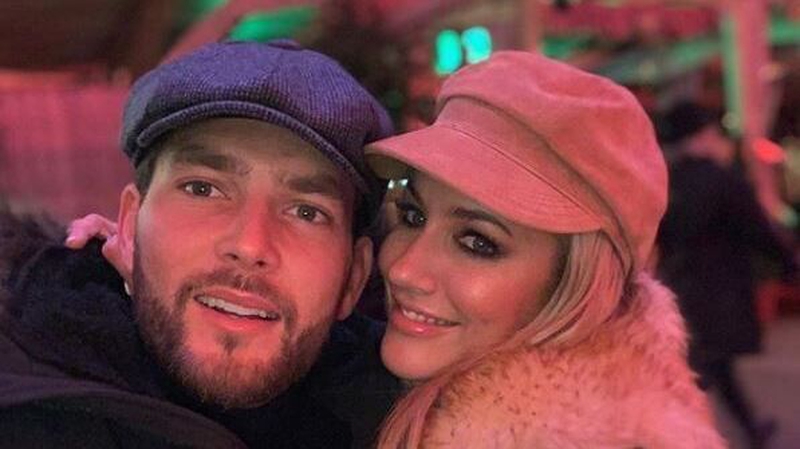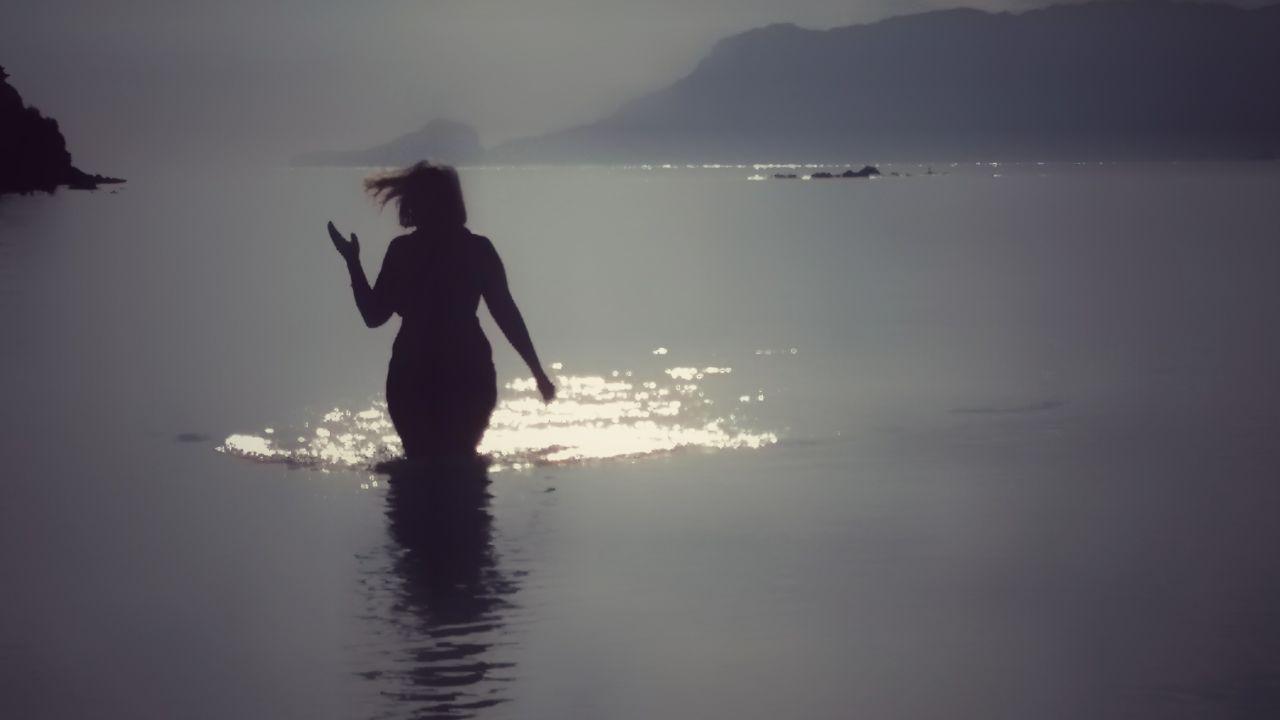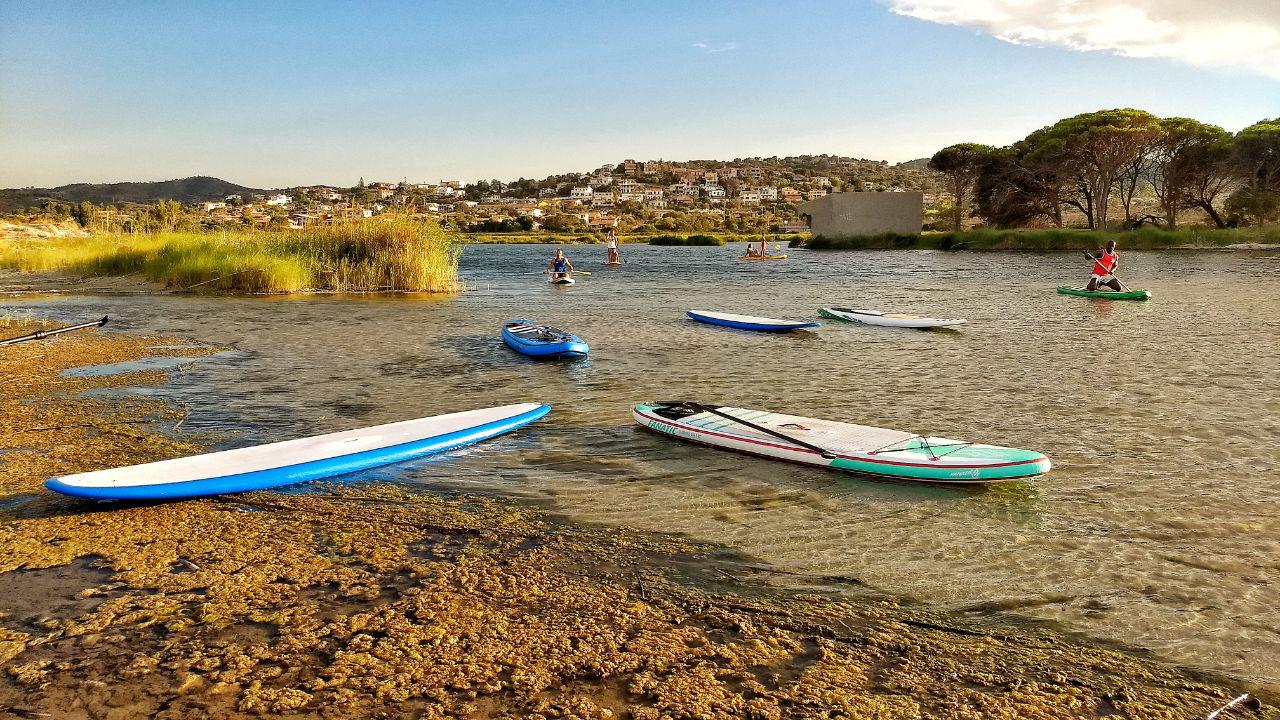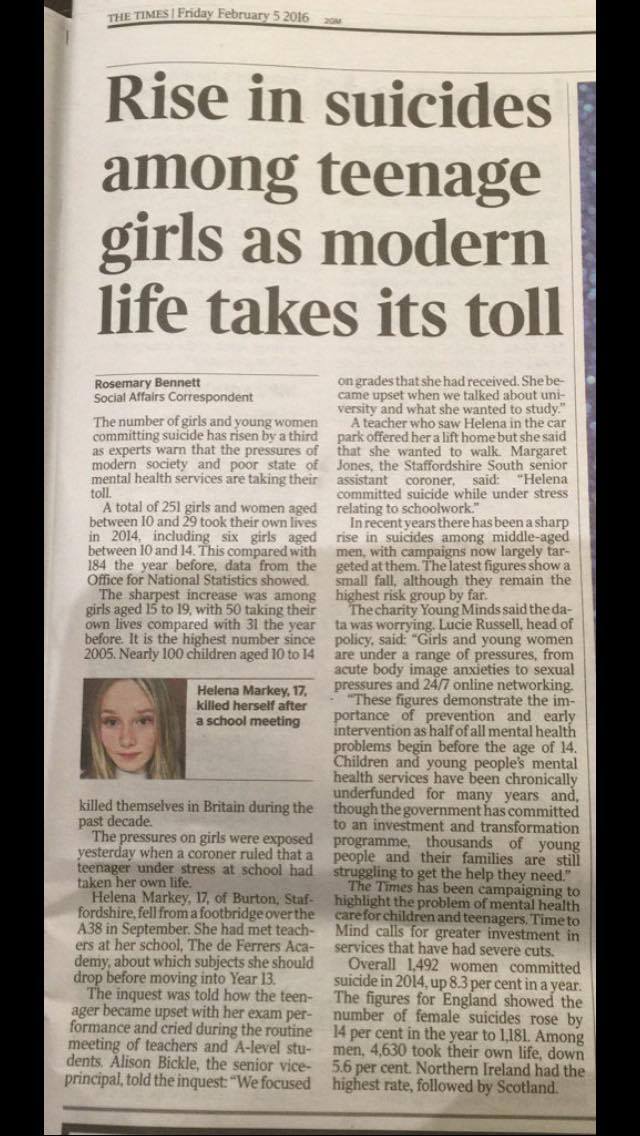
Caroline’s Flack’s suicide is all over the media.
Within an hour of the story breaking, the Daily Mail online had already published 16 articles on her and last night the Sun took down a piece which mocked the dead Love Island presenter.
And today the Mail has run articles on her boyfriend, Lewis Burton who ‘reveals his grief’, on her ex-fiancè Andrew Brady looking ‘downcast’, and on her twin sister who she was close to.
And the general consensus is that as long as the media outlets publish the Samaritans helpline, they can run with whatever story they want. After all, if they’ve triggered a reaction, readers know where to get help.
But enough is enough. It’s highly unlikely that Lewis Burton has revealed his grief because that grief is impossible to articulate when you’ve just lost someone you’ve loved to suicide. Similarly, is it really a story that Andrew Brady is snapped looking downcast and upset when the woman he thought he was once going to spend his life with has just ended her life?
As a news reporter, I would have been all over this 18 years ago. Forget food. I dined on adrenalin, deadlines and the chance to get exclusives. Death doorknocks – where you turn up on the doorstep of a bereaved family to get a comment – were nothing more than a precursor to getting front page news.
Over the years I had a developed a tough as nails approach to death. I was just 15 when I covered my first inquest on work experience and was handed photos of a 17-year-old-schoolgirls’s mutilated body; 23 and fresh from my post-grad in newspaper journalism when I did my first death door knock for an 11-year-old boy who had collapsed after a day at the beach.
Since then I’ve covered death in all its guises, including murders, suicide, 9/11 and other major incidents. I didn’t question anything we did or the lack of training we got. It was just the way journalism was. We were there to report the news.
But that all changed when Matt killed himself because suddenly I was no longer the journalist dealing with the bereaved. I was the bereaved. But my journalist inistinct never left me and in those first few months, it was as if I was split in two. There was the me who had lost my brother and who was trying to support my parents, my brother, my sister-in-law and my nieces and nephew, but there was also journalist me who was constantly trying to guess what my colleagues might do next.
First there was a story that the nationals had got hold of and that was that the school my nieces attended had banned hangman from the classroom. Some parents complained because it was just a game and couldn’t understand how it could be so distressing. But as a journalist whose brother had hanged himself, I saw the situation differently.
Then came Matt’s inquest. I told my family not to attend because I wanted to save them from the question that a journalist would no doubt ask them as I had done on multiple occasions: How do you feel?
Eleven years ago if a journalist had asked me how I felt, I too would have said I was heartbroken, devastated and sad – the same adjectives that right now are being used to describe the reactions to Caroline Flack ending her life.
Now, however, I would give a much more accurate response. I would tell you that from the moment I learnt the news, I felt permanently sick and that making it through five minutes was a triumph itself. I would tell you that for a year, I survived on an hour or two of broken sleep per night, too afraid to close my eyes because when I did all I could see was my brother dangling with a noose around his neck. I would tell you that when I finally did get to sleep, I would wake up from nightmares so unpleasant I was choking on my tears. I would tell you that I shuffled off to work in dirty mismatched clothes because getting dressed in clean coordinated outfits required energy I didn’t have. I would tell you that I stopped wearing scarves and necklackes because I was scared they would catch around my neck and strangle me to death. I would tell you that every night I would come home and search for my boyfriend in my chest of drawers, in the wardrobe and under the bed, paranoid that he too had taken his life. I would tell you that I switched from being outgoing and confident, and happy to move to foreign cities on my own without so much as a second thought, to clingy, vulnerable and insecure, a woman who thought danger was lurking around every corner. Ending it all would have been a far simpler option than dealing with my grief.
Losing my brother to suicide has undoubtedly made me a better journalist. I now know how to approach people whose pockets are weighted down with grief. I know the questions to ask and the questions to avoid, but more importantly, I treat the suicide bereaved with the compassion, respect and sympathy they deserve.
I don’t agree with those who believe we shouldn’t report on suicide. We should. It’s vitally important because we need to de-censor it at a cultural level. But we need to do so without a backdrop of sensation and voyeurism. There is no need for a media circus to dissect the life of the deceased or constantly report on the superficial reactions of the bereaved and there is no need for the public to look on.
Those who choose suicide have left their pain behind but the moment they die they pass it on to the loved ones who survive them.
And that’s something that the tabloids need to bear in mind because simply in losing someone to sucide, the bereaved – in this case, Caroline Flack’s family and friends – have already suffered enough.
A version of this was published in Reporting bad news: negotiating the boundaries between intrusion and fair coverage in media representation of death (Sallyanne Duncan and Jackie Newton, 2017 Peter Lang Publishing)



 No. I love swilling the word ‘no’ around my mouth. I love the feel of it. It’s round. Weighty. Assertive. And so much more powerful than yes.
No. I love swilling the word ‘no’ around my mouth. I love the feel of it. It’s round. Weighty. Assertive. And so much more powerful than yes. Today’s to-do list is shockingly long. Important stuff. Urgent stuff. Stuff that’s important and urgent, along with all the things that I need to cross off before flying back to the UK tomorrow.
Today’s to-do list is shockingly long. Important stuff. Urgent stuff. Stuff that’s important and urgent, along with all the things that I need to cross off before flying back to the UK tomorrow.
